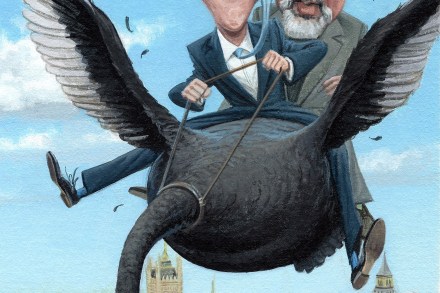Will Germany let Greece stay in the euro?
The German government is split on the biggest policy question of the day, according to the FT’s German edition. As Open Europe points out, the paper has a senior member of the CDU/CSU group in the Bundestag saying that finance minister Wolfgang Schäuble ‘supports the bankruptcy of Greece, Merkel wants to strictly avoid it… It goes back and forth, which is not very helpful.’ If true, this is a remarkable story. The British Foreign Office has been convinced since the beginning of the year that the Germans are keen to kick the Greeks out of the euro. Their conversations with the Germans have convinced them that Berlin believes that the









